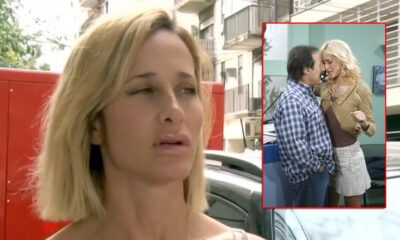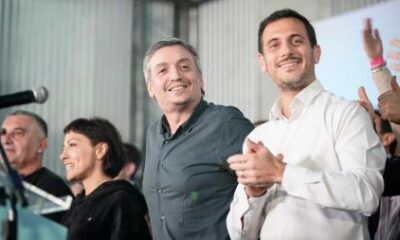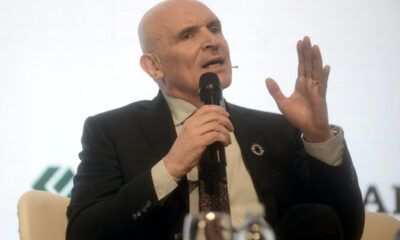INTERNACIONAL
South Korean president apologizes for declaring martial law ahead of impeachment vote

South Korean President Yoon Suk Yeol on Saturday apologized for his short-lived declaration of martial law earlier in the week, as he now prepares for a parliamentary vote on whether to impeach him.
Yoon said in a televised address Saturday morning that he will evade legal or political responsibility for the declaration and vowed not to make another attempt to impose it, according to The Associated Press. The president, a conservative, said he would leave it to his party to offer a path forward amid the country’s political turmoil, «including matters related to my term in office.»
«The declaration of his martial law was made out of my desperation,» Yoon said. «But in the course of its implementation, it caused anxiety and inconveniences to the public. I feel very sorry over that and truly apologize to the people who must have been shocked a lot.»
In his martial law declaration on Tuesday, Yoon called parliament a «den of criminals» blocking state affairs and pledged to eliminate «shameless North Korea followers and anti-state forces.»
SOUTH KOREAN PRESIDENT TO FACE IMPEACHMENT VOTE THIS WEEKEND OVER MARTIAL LAW ORDER, LAWMAKERS SAY
South Korean President Yoon Suk Yeol speaks at the presidential office in Seoul, South Korea, Saturday, Dec. 7, 2024. (AP)
A National Assembly vote on an opposition-led motion to impeach Yoon is slated for Saturday afternoon. The opposition parties that jointly brought the impeachment motion hold 192 of the legislature’s 300 seats, meaning they need at least eight additional votes from Yoon’s conservative People Power Party to secure the needed two-thirds to pass the motion.
Yoon’s party called for his removal on Friday, although the party remained formally opposed to impeachment.
Opposition lawmakers say that Yoon’s declaration of martial law was a self-coup, so they drafted the impeachment motion on rebellion charges.
If Yoon is impeached, his powers will be suspended until the Constitutional Court decides whether to remove him from office. Prime Minister Han Duck-soo, the second in command in the South Korean government, would take over his presidential responsibilities.
Should the president be removed, an election to replace him must be held within 60 days.
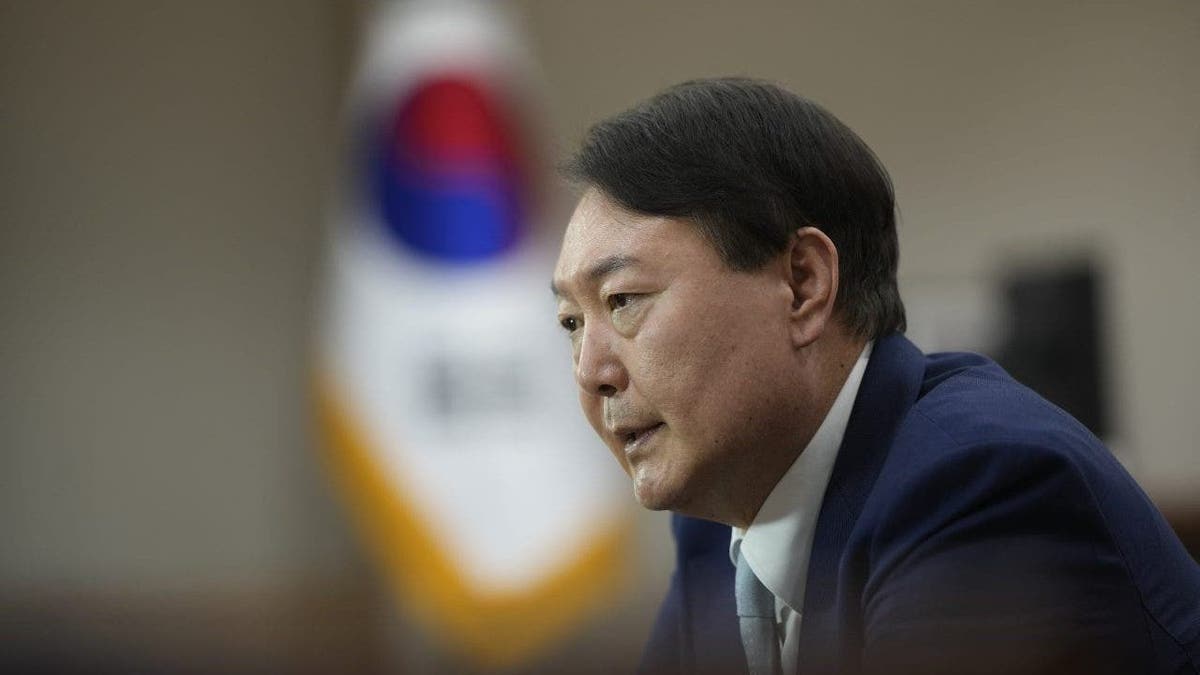
South Korean President Yoon Suk Yeol speaks during an interview at the presidential office in Seoul, South Korea, Tuesday, Jan. 10, 2023. (AP Photo/Lee Jin-man)
On Tuesday, special forces troops were observed encircling the parliament building and army helicopters were hovering over it. The military withdrew after the National Assembly unanimously voted to overturn Yoon’s declaration of martial law, forcing him to lift it just hours after it was issued.
The declaration of martial law was the first of its kind in more than 40 years in South Korea.
Thousands of demonstrators have since protested in the streets of Seoul, waving banners, shouting slogans and singing along to K-pop songs with lyrics changed to demand Yoon’s removal.
Han said he had received intelligence that, during the period of martial law, Yoon ordered the country’s defense counterintelligence commander to arrest and detain key politicians based on accusations of «anti-state activities.»
SOUTH KOREAN LEADER FACING MOUNTING CALLS TO RESIGN OR BE IMPEACHED OVER MARTIAL LAW
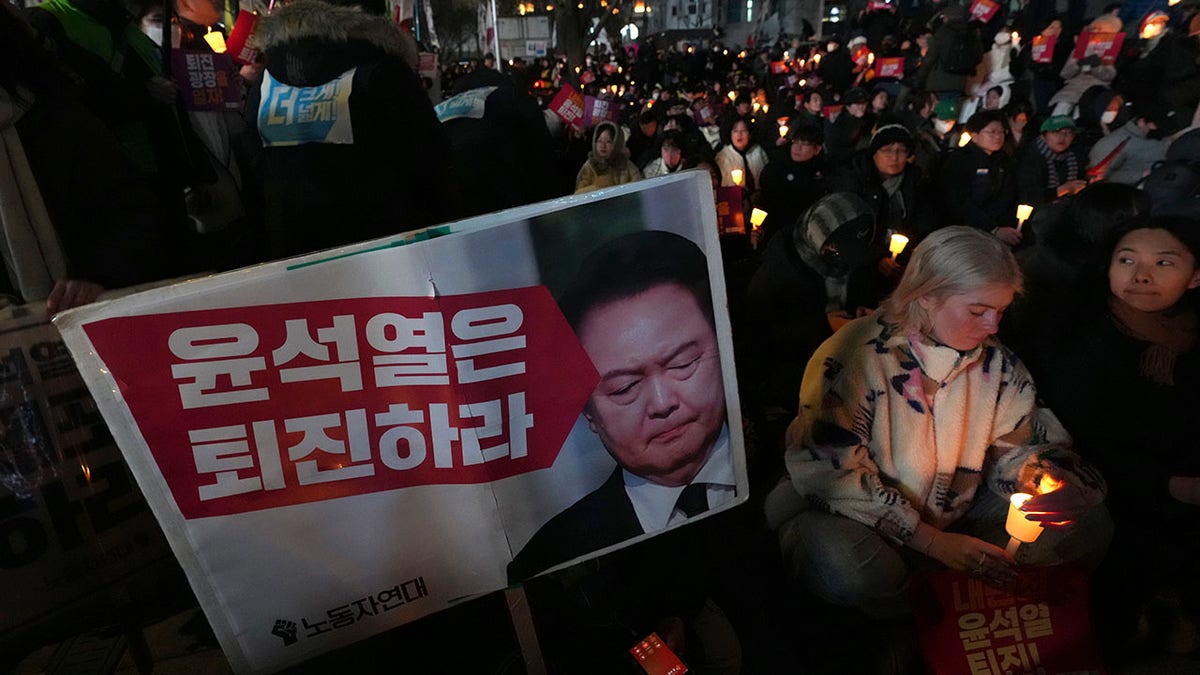
People hold candles during a candlelight vigil against South Korean President Yoon Suk Yeol in Seoul, South Korea, Wednesday, Dec. 4, 2024. (AP)
CLICK HERE TO GET THE FOX NEWS APP
After Yoon’s televised address, Han again called for the president to resign. Han said the president wasn’t in a state where he could normally carry out official duties.
«President Yoon Suk Yeol’s early resignation is inevitable,» Han told reporters.
Hong Jang-won, first deputy director of South Korea’s National Intelligence Service, told lawmakers in a closed-door briefing that Yoon called after imposing martial law and ordered him to help the defense counterintelligence unit to detain key politicians including Han, the main liberal opposition Democratic Party’s leader Lee Jae-myung and National Assembly speaker Woo Won Shik, according to Kim Byung-kee, one of the lawmakers who attended the meeting.
The Associated Press contributed to this report.
INTERNACIONAL
«Obsesionado patético» y «enemigos de la humanidad»: guerra de acusaciones entre Venezuela y el jefe de la diplomacia de Estados Unidos

Dictaduras y crisis migratorias
-
SOCIEDAD3 días ago
Conurbano salvaje. Hallaron muertos debajo de un puente a dos adolescentes que habían desaparecido el jueves
-
POLITICA2 días ago
Ola de calor: casi 50.000 usuarios se quedaron sin luz en el AMBA y hubo apagones en el interior
-
CHIMENTOS13 horas ago
Julieta Prandi contó lo que nunca antes sobre Poné a Francella: “Pasé situaciones incómodas”
-
POLITICA2 días ago
Guillermo Francos cargó contra Kicillof tras el doble crimen de Florencio Varela: «La Provincia está incendiada por la inseguridad»
-
POLITICA1 día ago
«Lanus en la oscuridad: Cortes de luz eternos y gestión cuestionada de Julián Álvarez»
-
POLITICA13 horas ago
José Luis Espert, polémico sobre la inseguridad: «A los chorros hay que llenarlos de agujeros y colgarlos en una plaza pública»






















